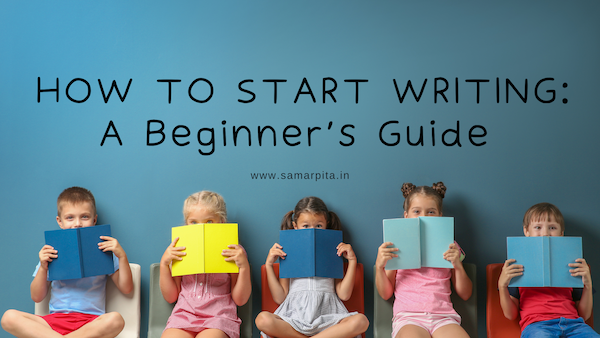Writing is a fundamental skill that opens doors to various opportunities, whether in academics, business, or personal expression. For beginners, mastering the art of writing can seem daunting. This guide aims to provide a clear pathway to developing your writing skills, making the process less intimidating and more structured.
Also Read: How to Develop Compelling Characters: A Guide for New Writer
Understanding the Basics
Before diving into writing, it’s crucial to understand the basics:
Grammar and Punctuation
Good grammar and correct punctuation are the foundations of clear writing. Incorrect grammar can confuse readers and detract from your message. Familiarize yourself with basic rules of grammar, such as subject-verb agreement, proper use of tenses, and correct punctuation marks.
Sentence Structure
A well-structured sentence enhances readability. Aim for clarity by keeping sentences concise. Avoid overly complex sentences that can confuse readers. For example, compare:
- Complex: Despite the fact that it was raining, the match continued, although the players were soaked.
- Simple: The match continued despite the rain, soaking the players.
Also Read: Understanding Dialogue Writing In Fiction
Paragraph Structure
Each paragraph should focus on a single idea, starting with a clear topic sentence. Supporting sentences should elaborate on this idea, providing examples or evidence. Conclude with a sentence that sums up the paragraph’s main point.
Developing a Writing Process
Establishing a consistent writing process can improve efficiency and quality:
Planning Your Writing
Start with brainstorming ideas. Create an outline to organize your thoughts and structure your writing. An outline serves as a roadmap, ensuring you cover all necessary points logically.
Drafting
Begin by writing a rough draft without worrying about perfection. The goal is to get your ideas down on paper. You can refine and polish them later.
Also Read: Crafting Clear, Elegant Prose
Revising and Editing
Revising involves reviewing your draft for content and structure. Ensure your ideas flow logically and your arguments are well-supported. Editing focuses on correcting grammar, punctuation, and style errors. Read your work aloud to catch mistakes you might overlook when reading silently.
Effective Writing Strategies
Adopting effective strategies can significantly enhance your writing:
Clarity and Simplicity
Strive for clarity by using simple language. Avoid jargon and complex words unless necessary. Clear writing ensures your message is easily understood by the reader.
Also Read: Tips for Authentic and Engaging Writing
Consistency in Tone and Style
Maintain a consistent tone and style throughout your piece. Whether formal or informal, consistency helps in creating a cohesive and engaging narrative.
Avoiding Common Pitfalls
Beware of common writing pitfalls such as redundancy, passive voice, and run-on sentences. Redundancy can make your writing repetitive and boring. For instance, “Each and every” can be simplified to “Each” or “Every.” Active voice makes your writing more dynamic and direct. For example:
- Passive: The ball was thrown by John.
- Active: John threw the ball.
Also Read: Crafting Well-Rounded and Relatable Characters with Depth
Examples and Practical Tips
Here are practical tips to apply these strategies effectively:
Writing a Clear Introduction
Your introduction should grab the reader’s attention and provide a preview of what’s to come. Start with a hook, such as a question, quote, or interesting fact. Follow with a brief overview of your main points.
Developing Strong Body Paragraphs
Each body paragraph should start with a topic sentence that states the main point. Follow with supporting sentences that provide details, examples, or evidence. Conclude with a sentence that reinforces the paragraph’s main idea.
Crafting a Compelling Conclusion
Summarize your main points in the conclusion, reinforcing your overall message. End with a strong closing statement that leaves a lasting impression on the reader.
Also Read: A Ready-Reckoner To Write Authentic and Relatable Personalities
Conclusion
Writing effectively requires practice and dedication. By understanding the basics, developing a structured writing process, and adopting effective strategies, you can enhance your writing skills. Remember, the key to good writing is clarity, simplicity, and consistency. Keep practicing, and over time, you’ll see significant improvement in your writing abilities.
By following these guidelines and tips, beginners can develop a strong foundation in writing, making the process more manageable and enjoyable. Happy writing!
***
If you are looking for an excellent manuscript editor, someone to create content for your business, or an expert to help build your personal or professional brand on social media, then look no further and connect with me at editor@samarpita.in I can be followed on instagram at @samarpita and on twitter at @samarpitadotin.
***********
Read my ebook WRITE. EDIT. PROMOTE. to learn the basics about becoming an author – from writing your own book, to editing your first draft, and to promoting your book yourself! You can also read my ebook How To Write A Story Effectively and learn some valuable lessons about how a story can go from average to extraordinary. This book is part 1 of the series.
In fiction, I have two short stories for children in an ebook called Bedtime Stories.

